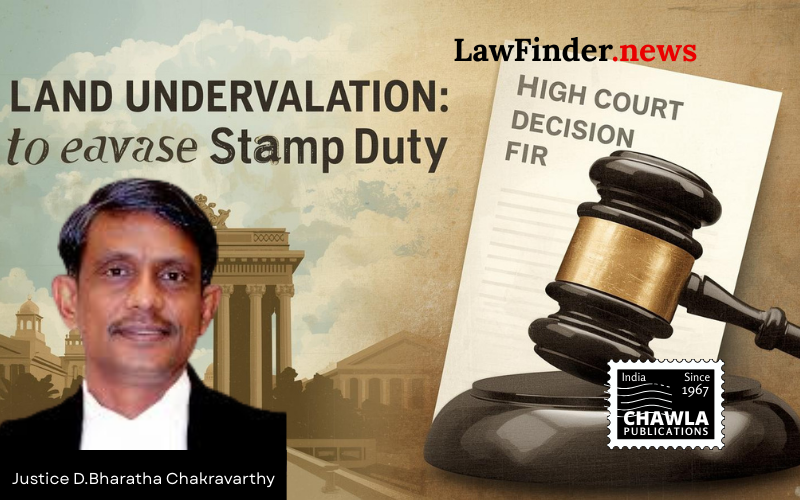Madras High Court Upholds Investigation into Conspiracy and Pecuniary Gain Under Indian Penal Code and Prevention of Corruption Act
The Madras High Court, presided over by Justice D. Bharatha Chakravarthy, dismissed petitions seeking to quash a First Information Report (FIR) related to alleged conspiracy and undervaluation of land aimed at evading stamp duty. The case, involving A. Abdul Muneer and others, centers around accusations of unlawful pecuniary gain and conspiracy under the Indian Penal Code and the Prevention of Corruption Act.
The FIR, registered on May 13, 2021, by the Vigilance and Anti-Corruption Police in Vellore, accuses the petitioners of undervaluing land in Katpadi village to evade substantial stamp duty and registration fees, thereby causing a financial loss to the government. The disputed land, initially sold as plots at a higher valuation, was later transacted as agricultural land at significantly lower values, raising suspicions of a conspiracy involving the petitioners and local officials, including a former Sub-Registrar and a Special Deputy Collector (Stamps).
The petitioners argued that the statutory order under Section 47-A(1) of the Indian Stamp Act, which allows for quasi-judicial determination of land value, should prevent further criminal prosecution. They contended that the order, once finalized, should be binding and that subsequent actions, including the FIR, amounted to an abuse of legal process. The defense highlighted previous transactions and judicial orders supporting their valuation claims, asserting that the lands were under cultivation and not plotted for residential use.
However, the court emphasized that the existence of a statutory order does not preclude criminal investigation, especially when there is prima facie evidence suggesting conspiracy or unlawful pecuniary gain. Justice Chakravarthy noted that such investigations are necessary to ascertain the veracity of the allegations and that photographs and village records presented by the petitioners could not be deemed conclusive evidence at this stage.
The court also referenced the procedural history, including the setting aside of the statutory order by the Principal Revenue Control Officer and subsequent legal challenges. Despite the petitioners' reliance on previous court judgments to support their case, the court found these arguments insufficient to quash the FIR at this preliminary stage.
Highlighting the need for a thorough investigation, the court allowed the continuation of the criminal proceedings, stating that the allegations of conspiracy and undervaluation warrant further scrutiny. The decision underscores the judiciary's stance that legal processes must be allowed to unfold fully to determine the veracity of the claims made against the accused.
In conclusion, the Madras High Court's ruling emphasizes the importance of due legal process and the need to investigate potential criminal activities thoroughly, even when previous judicial orders exist. The court's decision reinforces the principle that the finality of a quasi-judicial order does not preclude the initiation of criminal proceedings if there is a prima facie case of conspiracy or financial misconduct.
A.Abdul Muneer v. State, (Madras) : Law Finder Doc Id # 2780038




